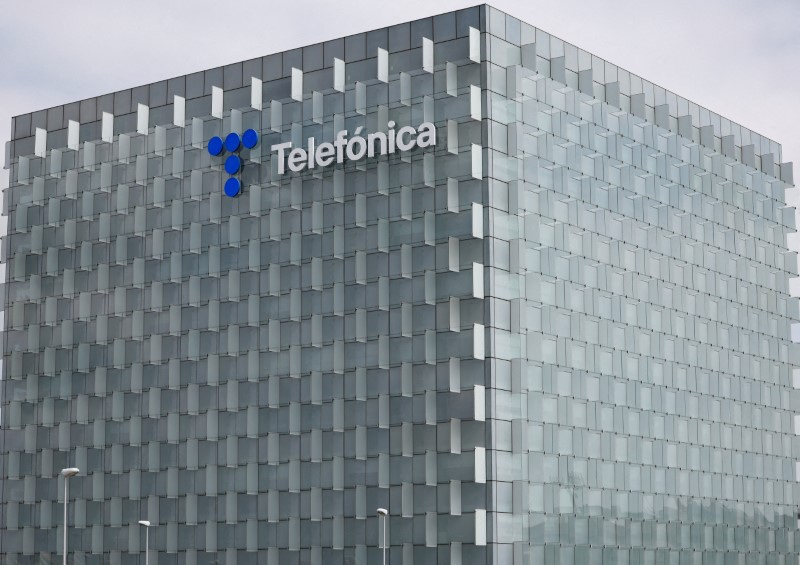Gold prices set for weekly gains on dovish Fed outlook; silver near record high
MADRID (Reuters) -Telefonica's shares rose on Wednesday, a day after the Spanish government said it would buy a stake of up to 10% in the company to counterbalance a similar-sized acquisition by Saudi Arabia's STC.
Telefonica (BME:TEF) shares were up 3.2% at 3.68 euros after market close, their highest since Dec. 12.
With the acquisition, Spain is sending a message to STC and other foreign funds or investors that the government will defend its strategically important companies, a source with knowledge of the deal told Reuters.
State holding company SEPI said on Tuesday it would buy the shares in a way that would minimise the impact on the market price, although it did not give a timeframe.
It will issue debt to finance the acquisition and will hire a financial advisor to buy small quantities of shares over a two-month period, the source said.
The impact on national debt is expected to be minimal and will be mitigated by the dividend Telefonica pays.
A 10% stake had a market value of around 2 billion euros ($2.19 billion) as of Tuesday evening. SEPI can expect to receive at least 172.5 million euros in dividend payments a year until 2026.
"It's news that very clearly reinforces a very important and strategic company for our country that's present in the defence sector and therefore related to all our national security policies," Budget Minister Maria Jesus Montero told reporters.
She added that acquiring stakes in telecom companies was a "very common practice" in other European countries, citing the examples of Germany's Deutsche Telekom (ETR:DTEGn) and France's Orange .
The move is in response to the STC announcing in September it had built a 9.9% interest in Telefonica.
Other main shareholders are Caixabank, which holds 3.5%, and Criteria, Caixabank's main shareholder, which holds a 2.5% stake. Spain's BBVA (BME:BBVA) also holds a 4.87% in the Spanish phone giant.
Both BBVA and Caixabank, which each have a seat on Telefonica's board, have said that STC's entry into the company's capital was positive from a financial point of view.
Caixabank has also said it would analyse with Telefonica any potential cooperation with the Saudi Arabian telecoms company.
As Telefonica is considered a defence service provider, the Defence Ministry has a say in acquisitions and holdings between 5% and 10% unless the buyer commits to not requesting a seat on the board.
STC has acquired a 4.9% stake so far but has not yet requested authorisation to exercise voting rights over the remaining 5%.
The government is yet to decide whether it will apply for a seat on the board, the source said.
Analysts expressed concern that the government could use its stake to favour its interests.
The government "will be in a better position to interfere as regards the capital allocation policy and probably the content broadcast to its media subscribers, at the expense of the benefits of the rest of Telefonica's shareholders," Mirabaud said in a note to clients.
Economy Minister Nadia Calvino said that SEPI's presence in Telefonica - it will become its largest shareholder - would "reinforce the company's ownership stability".
($1 = 0.9118 euros)
